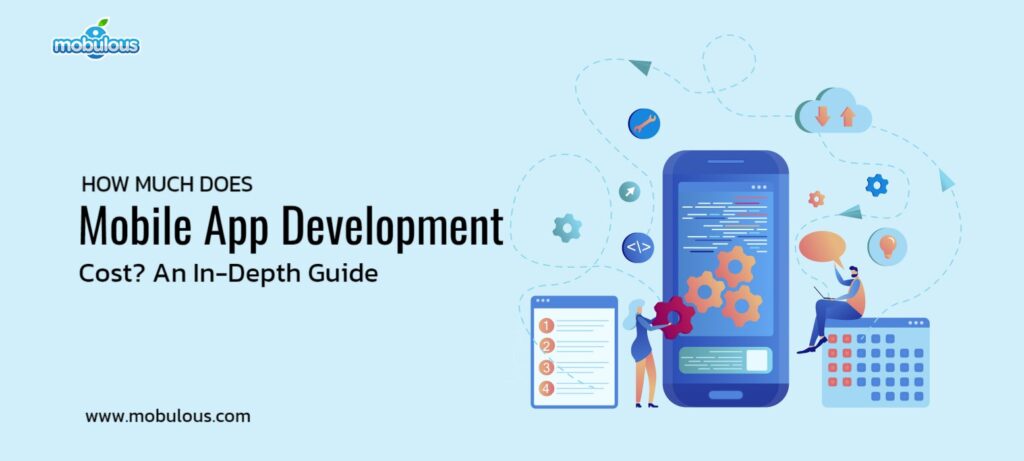
How Much Does Mobile App Development Cost
Mobile app development cost is crucial for businesses aiming to establish a digital presence. Numerous factors influence these costs, including the app’s complexity, the platforms it will run on, and the features required. By examining these aspects, businesses can better navigate their budgets and expectations, ensuring they invest wisely in their mobile app projects.
Understanding the Cost Factors
1: Type of Mobile Application
The first step in estimating the cost of mobile app development is determining the type of application you want to build. Mobile apps can be broadly classified into three categories:
- Native Apps: Developed specifically for a single platform (iOS or Android), native apps provide a high level of performance and a seamless user experience. However, the cost of development is typically higher due to the need for separate codebases.
- Hybrid Apps: Combining elements of both native and web applications, hybrid apps allow for a single codebase to run on multiple platforms. While this can reduce costs, performance might not match that of a native app.
- Web Apps: These are essentially websites optimized for mobile devices. They are generally the most cost-effective option but offer limited functionality compared to native or hybrid apps.
2: Complexity and Features
The complexity of the app and the features you want to integrate play a crucial role in determining development costs. Here are some common features that can impact pricing:
- User Authentication: Allowing users to register and log in adds complexity to the app.
- Third-Party Integrations: Connecting with external services (e.g., payment gateways, social media APIs) can increase development time and costs.
- User Interface (UI) and User Experience (UX) Design: A well-designed app requires more time and effort, which can elevate costs.
- Backend Development: Building a robust backend to support app functionalities can be resource-intensive.
3: Platform Selection
Choosing the right platform for your app can significantly influence costs:
- iOS Development: Generally, more expensive due to a higher standard of design and functionality expectations.
- Android Development: While potentially less costly than iOS, the diversity of Android devices can complicate development and testing.
- Cross-Platform Development: Utilizing frameworks like Flutter or React Native can reduce costs by allowing for shared codebases, but might sacrifice some platform-specific features.
4: Design Complexity
The design of your mobile app is crucial for user engagement. A simple design can keep costs low, while a more complex design with custom graphics, animations, and transitions will increase expenses. Here’s what to consider:
- UI/UX Design: Custom designs require professional input and more development time, impacting overall costs.
- Responsive Design: Ensuring your app works well on various devices adds to the design and development workload.
Cost Estimates by App Type
#1: Simple Apps
A simple app with basic features like user authentication, a few screens, and minimal backend integration can cost between $5,000 to $15,000. These apps typically involve limited functionality and straightforward design.
#2: Moderate Complexity Apps
For apps that require moderate functionality such as social media integration, maps, and payment processing, the cost can range from $15,000 to $50,000. This level of complexity often necessitates a more extensive backend and sophisticated UI/UX design.
#3: Highly Complex Apps
Highly complex apps, such as those featuring advanced functionalities (e.g., real-time capabilities, extensive user databases, and intricate UI/UX), can start from $50,000 and go well beyond $150,000. These projects usually demand a larger team and extended development time.
Development Team Composition
1: In-House Development Team
Building an in-house team can be more expensive upfront but allows for greater control over the development process. Typical roles include:
- Project Manager: Oversees the project timeline and team coordination.
- UI/UX Designers: Focus on the visual and experiential aspects of the app.
- Developers: Responsible for coding and implementation.
- QA Testers: Ensure the app functions correctly across different scenarios.
2: Freelancers
Hiring freelancers can reduce costs, but it may come with challenges such as lack of accountability and communication issues. When engaging freelancers, ensure they have relevant experience and good reviews.
3: Development Agencies
Partnering with a development agency can offer a balance between expertise and cost. Agencies often have established teams and processes, which can lead to faster development times and more reliable results. The costs can vary widely based on the agency’s reputation, experience, and location.
Additional Costs to Consider
1: Maintenance and Updates
Post-launch, your app will require regular maintenance to fix bugs, update features, and ensure compatibility with new OS versions. Budgeting for ongoing maintenance is essential, as it can account for 15-20% of the initial development cost annually.
2: Marketing Costs
Creating a great app is only half the battle; you also need to ensure it reaches your target audience. Allocate a budget for marketing efforts, including app store optimization (ASO), social media campaigns, and paid advertisements.
3: Hosting and Server Costs
If your app relies on a backend server, factor in hosting fees. Depending on the scale and user load, these costs can vary. Budget for reliable cloud service providers, which can range from $20 to $500 per month.
Conclusion
Understanding the various factors influencing the cost of mobile app development is crucial for making informed decisions for your project. By evaluating the type of app, complexity, platform selection, and team composition, you can estimate a realistic budget that meets your needs.
Investing time in research and planning will ensure that you achieve the desired results without exceeding your budget. As the mobile app market continues to grow, taking the plunge into app development can open up significant opportunities for your business.
FAQs About Mobile App Development Costs
Q: 1. What factors influence the cost of mobile app development?
The cost of mobile app development is influenced by several factors, including the type of app (native, hybrid, or web), the complexity and features required, platform selection (iOS or Android), design complexity, the development team composition, and ongoing maintenance needs.
Q: 2. How much does it cost to develop a mobile app?
The cost to develop a mobile app can vary widely based on its complexity. Simple apps may cost between $5,000 and $15,000, while more complex applications can range from $15,000 to over $150,000, depending on the features and functionalities required.
Q: 3. Is it cheaper to develop a hybrid app or a native app?
Generally, hybrid apps can be more cost-effective because they use a single codebase to run on multiple platforms. However, native apps typically offer better performance and user experience, which may justify their higher development costs in certain cases.
Q: 4. How long does it take to develop a mobile app?
The timeline for mobile app development can vary significantly based on complexity. Simple apps may take about 2 to 3 months, while moderate to complex apps could take anywhere from 3 to 9 months or more.
Q: 5. What are the ongoing costs after app development?
After the app is launched, you should budget for ongoing costs such as maintenance (about 15-20% of the initial development cost annually), marketing, server hosting, and potential updates for new OS versions.
Q: 6. Can I reduce development costs without sacrificing quality?
Yes, you can potentially reduce costs by choosing a hybrid app approach, using open-source technologies, or working with an experienced development agency that offers competitive pricing. However, ensure that quality is not compromised, as this can affect user satisfaction and retention.
Q: 7. What is the average hourly rate for app developers?
Hourly rates for app developers can vary based on location and expertise. In the U.S., rates can range from $100 to $250 per hour, while developers in regions like India may charge between $20 to $50 per hour.
Q: 8. What should I include in my app’s budget?
Your app budget should include costs for initial development, design, backend infrastructure, testing, marketing, and ongoing maintenance. Additionally, factor in any third-party service integrations and potential legal fees for app compliance.
Q: 9. How can I ensure my app is cost-effective?
To ensure cost-effectiveness, conduct thorough research before development, create a clear app concept, prioritize essential features, and consider using a minimum viable product (MVP) approach to validate your idea before investing in full-scale development.
Q: 10. Should I hire freelancers or an agency for app development?
Both options have pros and cons. Freelancers can be more affordable, but they may lack the structure and accountability of an agency. An agency typically offers a full team with diverse skills, leading to more reliable results but potentially at a higher cost. Evaluate your project needs and budget when making a decision.



